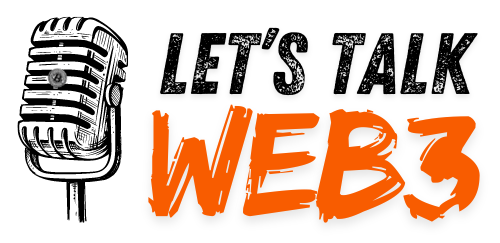Quick commerce is taking centre stage in the Indian market, with the trio of Blinkit, Swiggy Instamart, and Zepto harnessing their early mover advantage. These companies have established strong brand recognition and captured a significant share of the market. In FY24, the combined revenue of these three players exceeded $1 billion, while reports indicate a staggering 280% growth in the quick commerce industry in India over the past two years.
These market leaders are not limiting themselves to grocery deliveries. They are venturing into new categories, including fashion and electronics. The hallmark of quick commerce lies in its promise of rapid delivery—often within just 10 minutes—setting it apart from traditional e-commerce platforms that can take days. Beyond these major players, a wave of startups and tech companies are eager to replicate the success of the incumbents.
Meet India’s new quick commerce brigade
As the quick commerce landscape continues to evolve, here’s a look at some notable players entering the 10-minute delivery space:
1. Amazon India
Amazon is set to roll out its quick commerce vertical in early 2025, despite the competition. The company is bolstering its supply chain through Amazon Fresh, aiming for grocery deliveries within 20 to 30 minutes. Recently, it expanded its grocery delivery service to 130 cities, doubling its reach from last year. Amazon is also enhancing its logistics capabilities by incorporating advanced technologies and optimising delivery routes, ensuring efficiency and reliability. The focus on same-day deliveries for Prime members is expected to play a significant role in attracting customers looking for immediate access to a wide range of products.
2. BBnow
BigBasket, owned by Tata, has transitioned to a full-scale quick commerce platform after successfully piloting 30-minute deliveries. The company plans to deploy 500-600 dark stores nationwide, integrating these with existing warehouses to streamline delivery of both groceries and non-grocery items. BigBasket aims to generate $1 billion from its quick commerce segment this financial year. Additionally, the company is leveraging data analytics to understand consumer preferences, enabling personalised offerings that cater to local tastes. BigBasket’s commitment to quality and fresh products, combined with its strategic partnerships with local suppliers, positions it well in the competitive landscape.
3. FirstClub
Founded by former Cleartrip CEO Ayyappan R, FirstClub seeks to establish a Costco-like experience in India. The startup is currently in talks to raise funds for its quick commerce venture, focusing on delivering curated premium products within 20 to 30 minutes, alongside an offline retail presence. FirstClub’s unique model aims to create a membership-based platform, offering exclusive deals on high-quality products, thereby attracting discerning consumers. The startup is also exploring partnerships with local artisans and brands to provide a diverse product range that emphasises quality over quantity.
4. Flipkart Minutes
Flipkart has recently expanded its “Minutes” service, which promises delivery of various products within 10 minutes. After a successful pilot in Bengaluru, the service is now available in Delhi NCR. Notably, users can cancel or refuse orders if their expectations aren’t met. Flipkart is also investing in advanced AI and machine learning technologies to predict demand patterns and optimise inventory management across its dark stores. The service focuses not only on groceries but also offers a selection of essentials, catering to the needs of urban consumers looking for convenience.
5. JioMart
Reliance Retail’s JioMart is re-entering the quick commerce space with a pilot in Mumbai and Navi Mumbai, promising grocery and FMCG deliveries within an hour. Plans are in place to reduce this time to 30-45 minutes and expand product categories, leveraging Reliance’s extensive network of stores. JioMart is also exploring partnerships with local businesses to enhance product offerings and improve delivery capabilities. The integration of technology, such as real-time tracking and automated inventory systems, aims to streamline operations and enhance customer satisfaction.
6. Myntra
Myntra, owned by Flipkart, has become a pioneer in quick commerce for fashion, offering a four-hour delivery window in select locations. The platform plans to expand its quick delivery services to more cities by the end of 2024. Myntra is focusing on curating fashion items that are in high demand, enabling quicker fulfilment. Additionally, the platform is investing in advanced logistics solutions to ensure timely deliveries and reduce operational costs. Collaborations with brands for exclusive launches and limited-edition collections are also part of Myntra’s strategy to attract fashion-forward consumers.
7. Nykaa
Nykaa has launched a quick delivery pilot in Mumbai, targeting a 10-minute delivery window for select products. However, analysts warn that this ambitious plan could lead to increased fulfilment costs. Nykaa is emphasising the quality of its beauty products and leveraging its existing logistics network to optimise deliveries. The company is also exploring partnerships with local salons and beauty professionals to offer exclusive services, enhancing customer engagement and expanding its product offerings.
8. Ola
Ola is exploring a return to quick commerce, planning to set up automated dark stores to enhance delivery speed. The company aims to utilise its existing infrastructure to streamline the process. Ola’s previous foray into quick commerce under Ola Dash has provided valuable insights that will inform its new strategy. By leveraging its expertise in logistics and technology, Ola is positioned to disrupt the food delivery segment once again, potentially offering unique services like meal subscriptions and event catering in the future.
9. Slikk
Founded in August 2024, Slikk aims to deliver branded fashion items within 60 minutes. The platform employs machine learning to tailor the shopping experience to customer preferences. Slikk is focusing on building a strong brand identity around quality and sustainability, partnering with ethical fashion brands to cater to socially conscious consumers. The startup also plans to introduce features like virtual fitting rooms and personalised styling recommendations to enhance the shopping experience.
10. Swish
Launched in August 2024, Swish focuses on delivering fast food within 10 to 15 minutes in Bengaluru. The startup operates a cloud kitchen and aims to expand to more locations shortly. Swish is leveraging data analytics to understand customer preferences and optimize its menu offerings. The company also plans to introduce subscription models for regular customers, allowing them to enjoy exclusive discounts and offers. As it expands, Swish aims to incorporate a diverse range of cuisines to attract a broader audience.
With both established players and newcomers vying for market share, the landscape is evolving rapidly. It will be exciting to see how these companies shape the future of delivery services in India, pushing the boundaries of convenience and customer satisfaction.





